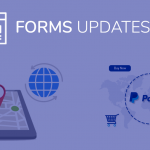

80%
Great
Sale!
Get 80% Off On Our WordPress Plugins For a Limited Time Only
GET ALL 16 WORDPRESS PLUGINS FOR $79 ONLY!
It includes Image Gallery, Forms, Google Map, Slider, Catalog, Portfolio, Video Player and more. In this case, You save more than $350. Are you happy? Hurry up,it's limited!
Get Now
Huge-IT
Everything You Need to Know About Online Casino Payouts and Their Regulation
In the dynamic world of online gambling, understanding payouts can feel like navigating a minefield. With enticing games and lucrative rewards, players often overlook the crucial details surrounding how and when they receive their winnings. This knowledge is essential for ensuring a safe and enjoyable gaming experience.
Casinos with fast payouts are influenced by a variety of factors including payout rates, regulatory frameworks, and the methods used for financial transactions. As players increasingly flock to virtual casinos, knowing how to identify reputable sites with high payout percentages becomes paramount. Additionally, understanding what safeguards are in place to protect their transactions is equally vital.
This article dives deep into everything you need to know about online casino payouts and their regulation, equipping you with the insights necessary to navigate the digital gambling landscape with confidence. From the basics of payout percentages to the complexities of regulatory compliance, we will guide you through the essential aspects that shape your online gaming experience.
Understanding Online Casino Payouts
Online casinos provide players with a range of payout options, including card payments, mobile payments, cryptocurrencies, bank transfers, and popular e-wallets like Neteller and Skrill. High-paying online casinos usually feature a payout rate of at least 96%. This means for every NZ$100 wagered, an average of NZ$96 should return to the player. Fast-paying casinos ensure rapid release of winnings, combining efficiency with potentially high payout rates. In New Zealand, the absence of online casino regulations allows players to enjoy tax-free winnings, unlike those from physical casinos. Proposed regulations aim to introduce taxes on offshore operators to ensure fairness.
What are Online Casino Payouts?
Payouts in online casinos represent the return players can expect from their wagers. High-paying casinos often feature payout rates of 96% or more, meaning NZ$96 is returned for every NZ$100 wagered. Players can choose from a variety of payout methods, including card payments, mobile solutions, cryptocurrencies like Bitcoin, and e-wallets. In New Zealand, the lack of regulatory oversight means winnings remain tax-free for players. Upcoming proposals could see offshore operators taxed, requiring them to register and report earnings.
Importance of Payout Rates
Payout rates are crucial for evaluating potential returns in online casinos. High-paying casinos promise a payout rate of at least 96% across all games, indicating that players receive NZ$96 back for every NZ$100 wagered. Understanding these rates helps players assess their expected return and optimize their gambling experience. Notably, high payout rates don’t necessarily mean quicker payouts; casinos can be both high paying and fast paying. Many players prefer high payout rates as they potentially enhance returns and overall satisfaction.
Identifying High-Paying Online Casinos
High-paying online casinos are characterized by payout rates of at least 96% across the games they offer, ensuring players get a higher return on their bets. These casinos often feature games with substantial jackpots and minimal or no payout limits, maximizing player winnings. Choosing a licensed casino is essential for a secure environment and optimized payouts. Fast-paying casinos, which offer quick payment processing options like Bitcoin and e-wallets, further enhance the gaming experience by ensuring immediate access to earnings.
Comparing Payout Percentages
Payout percentages indicate the amount players can expect to win back from their wagers over time. A payout rate of 96% means that for every NZ$100 wagered, NZ$96 is typically returned to players. Online slots generally showcase RTP percentages between 95% and 99%, while classic games like roulette possess a house edge of around 2.7%. Casinos often advertise these percentages, reflecting average returns to players and providing transparency in expected winnings.
Reviewing Casino Licenses
Licensed casinos maintain a secure and fair gambling environment. The Malta Gaming Authority (MGA) and UK Gambling Commission enforce strict regulations, ensuring adherence to legal and responsible gambling standards. Regular audits and the use of random number generators (RNGs) further guarantee game integrity. Players can verify an online casino’s licensing status through its website, which bolsters the casino’s reputation and allows collaborations with top software and payment service providers.
Reading Player Reviews and Feedback
Player reviews are crucial for assessing the reliability of an online casino. Positive feedback, especially from players in New Zealand, offers insight into user experiences. Independent reviews on forums and social media often provide deeper, unbiased perspectives. A reliable casino generally exhibits more positive reviews, with independent discussion forums and industry-related websites serving as excellent resources for evaluating the player experience.
Securing Financial Transactions
Online casinos use advanced security measures to ensure the safety of financial transactions and personal data. By implementing robust encryption technologies and secure payment methods, they maintain high standards of player protection. Additionally, strict regulatory compliance and fraud protection measures contribute to a secure and trustworthy online gaming environment.
Encryption Technologies
Reputable online casinos employ encryption technologies like SSL (Secure Socket Layer) to protect players’ personal and financial information during transactions. A recent survey confirmed that 97% of leading online casinos use such methods to secure customer data against potential loss or theft. Licensed casinos also implement specialized security systems alongside encryption to prevent fraud and cheating.
Payment Method Security
Online casinos offer multiple secure payment options, including credit/debit cards, e-wallets, and cryptocurrencies, to ensure flexible and safe transactions. Methods like Trustly enable direct bank transfers without needing to disclose personal information. Licensed casinos provide added security assurance, reducing risks associated with unregulated sites.
Fraud Protection Measures
Licensed online casinos use advanced data encryption and KYC (Know Your Customer) processes to protect financial data and verify user identities. Also, independent auditors like eCOGRA evaluate the fairness of games and payouts. These measures, combined with monitoring systems, help detect fraudulent activities and foster trust by upholding stringent regulations and compliance standards.
Types of Payment Methods Available
Online casinos offer diverse payment methods to cater to players’ preferences, including card payments, mobile transactions, prepaid cards, cryptocurrencies, and bank transfers. E-wallets like Neteller and Skrill are favored for their speed and security, enabling immediate transactions. Trustly simplifies direct bank transfers without registration, offering ease of use. Cryptocurrencies like Bitcoin and Ethereum deliver instant transactions and anonymity. It’s essential to recognize that prepaid vouchers are mainly for deposits and may not support withdrawals, highlighting each method’s strengths and limitations.
Credit and Debit Cards
Credit and debit cards, including Visa and MasterCard, are widely accepted at online casinos, facilitating quick and straightforward transactions. Credit cards allow borrowing against a credit line, while debit cards require available funds in a linked account. Transaction processing usually takes 1 to 2 business days, though some banks may restrict gambling-related payments. To use this method, players must register their card details with the casino, ensuring secure transactions.
E-Wallets
E-wallets, such as Skrill, PayPal, and Neteller, are popular for online casino withdrawals due to their speedy processing times, often immediate. While they provide quick withdrawals, transferring from an e-wallet to a bank account may take several days. Users can fund e-wallets via bank transfers or credit/debit cards before depositing at casinos. Other common e-wallets include PaysafeCard, Apple Pay, Google Pay, and Pay By Phone, offering various transaction options. The KYC process is critical to secure transactions but may be viewed as an additional step.
Bank Transfers
Bank transfers operate through a global network managed by banks, enabling two-way transfers between banks and merchants. Accurate submission of the casino’s account details and recipient’s banking info is required for deposits. Domestic transfers are quicker and cheaper than international ones, which may incur higher costs. Though reliable for deposits and withdrawals, bank transfers are known for longer processing times, appealing to players preferring traditional banking practices despite these delays.
Cryptocurrencies
Cryptocurrencies, like Bitcoin and altcoins, are gaining traction at online casinos for their secure and anonymous transactions with minimal fees. Deposits using cryptocurrencies are generally instant, with quicker withdrawals compared to traditional methods. Commonly supported cryptocurrencies include Bitcoin, USDT, Ethereum, and Dogecoin, making them accessible to various players. However, risks include price fluctuations and regulatory scrutiny. The blockchain technology behind cryptocurrencies enhances user security and privacy, attracting those prioritizing anonymity in online gambling.
Popular Posts
-
WordPress Forms Plugin Integrates PayPal and Google Maps
 05/15/2017
05/15/2017 -
Introducing To WordPress Login Plugin
 02/02/2017
02/02/2017 -
Importance of ethical behavior in the workplace
 06/05/2017
06/05/2017 -
Huge-IT News And Updates Of The Week
 01/27/2017
01/27/2017
Love To Write?
Contribute a guest post and spread creative message for the community.
Contact us at [email protected] and get editor's access!








